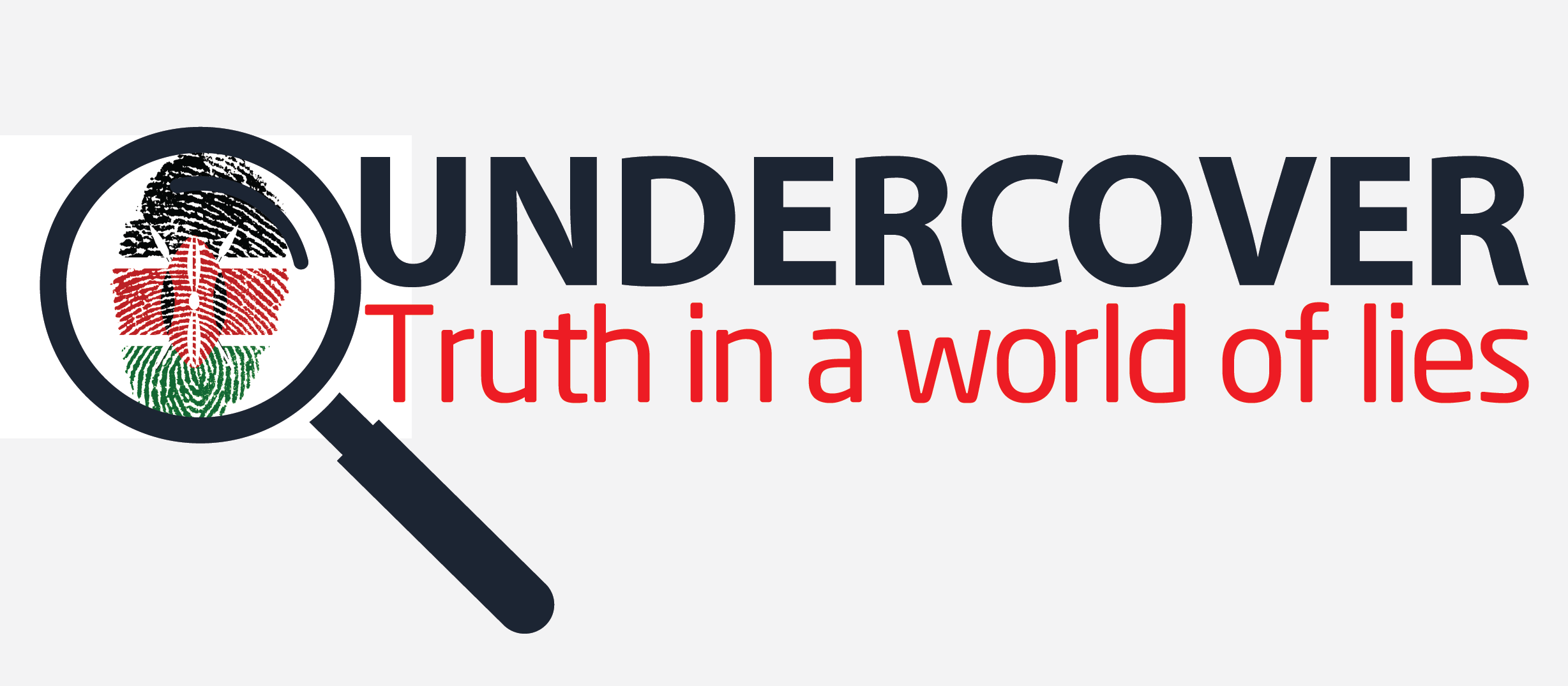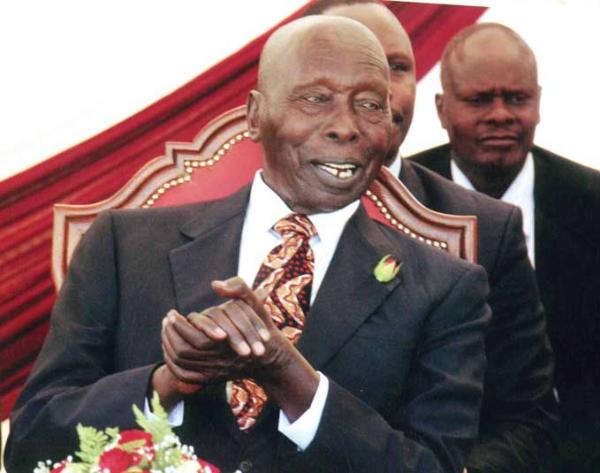Joshua Kulei was President Moi’s personal assistant, business associate besides being brother in-law to Central Bank Governor
By GW Ngari
Editor-at-Large
@Undercover KE
In a country where the wealthiest are pseudo-celebrities, not many Kenyans could single out Joshua Kulei in a crowd of three. Secretive and taciturn, the man who made his billions as the business proxy and henchman of former President Daniel arap Moi, preferred living in the shadows.
Kulei was among members of the late President Moi’s Tugen Boy’s Club comprising men related to him by blood, intermarriages or ethnic bonds.
Kulei was only fished out hibernation when summoned by the courts to answer on corruption related charges. Unlike others of his ilk who scaled the financial uplands and went into politics, Kulei, one of the richest of Kenya’s political go-betweens, extracted the most out of proximity to power, state connections and the largess that comes with it, then retreated to kula mali pole pole.
Individually, Kulei has interests sweeping across agribusiness and horticulture, hospitality, logistics, technology, media, real estate and property management, mining and security.
But through being President Moi’s business associate his investment pie was baked in the finance ovens of banking, finance, manufacturing , insurance, education and auto-motives.
That was not all. He and Moi were also in logistics, media, milling, aviation and large-scale agriculture. Their properties and real estate comprised 200 prime houses in Kenya, South Africa, USA and England where they owned a Sh600 million house in Eaton Park, Surrey and a Sh300 million flat in Lowdnes Square, London.
That was quite an incredible portfolio of business acumen for someone who was a mere prison officer. Kulei’s life was a case of being at the right place, at the right time.
The right place was being in the prison service when Moi was Vice President and Minister for Home Affairs under which the prisons fell. Right time was being Moi’s personal assistant when he became president.
There are other things that worked for Kulei. Like Moi, he was Tugen, whom Moi trusted among the sub-tribes that comprise the Kalenjin Nation. The ‘Tugen Mafia’ formed part of Moi’s Kitchen Cabinet of trusted advisers. They included Hosea Kiplagat, Moi’s nephew and Coop-bank chair, Gideon Toroitich, another nephew who was managing director of the Agriculture Finance Corporation, General Daudi Tonje, the one-time Chief of General Staff and Moi’s brother in-law and Philemon Chelagat the then Mayor of Karbanet and Moi’s campaign manager in his Baringo stronghold.
But Kulei luckier and ten times richer than all of them: He was Moi’s investment manager, proxy and henchman in mega deals and shareholdings
The late Nicholas Biwott, was the other kingpin of President Moi, but he fell from power following his indictment in the assassination of Foreign Affairs Minister Dr Robert Ouko.
His slot was taken by Joshua Kulei-Chelagat’s nephew. All these men, related to the president by blood, intermarriages and ethnic bonds, became filthy rich as a result. But Kulei luckier and ten times richer than all of them: He was Moi’s investment manager, proxy and henchman in mega deals and shareholdings.
British historian Charles Hornsby in his 2013 tome, Kenya: A History since Independence, notes that “by 1997, Kulei was a director of dozens of companies, including CMC Holdings, Bamburi Cement, CFC Bank, NAS Airport Services, Heritage AII Insurance, the American Life Insurance Company and Mitchell Cotts. He owned farms, flower exporters and dairies, both directly and on behalf of Moi,and many suspected him (like Biwott) of salting away millions overseas.”
While the Moi family held 52 percent of Standard Group, Kulei owned 38 percent meaning external shareholders hold the tail end of 10 percent, but the ownership structures could have changed over time.
Media ownership was important in influencing public opinion and Kulei was influential in pushing for the appointment of Uhuru Kenyatta as Moi’s preferred successor when his term expired in 2002.
With a weaker popular base and surrounded by real and imagined enemies, competence was no longer the key criterion for success
It is instructive that owning the Standard Group was such that they put very little money in it. British biographer Tom Bower in Rebel Tycoon, his memoirs of Tiny Rowland the head of Lonrho conglomerate, informs that Standard Group was part of Lonrho and was only gifted to Moi and Kulei in 1998 as a “thank you” for the many fruitful times the group had in Moi’s 24 year presidency and since opening shop in Kenya in 1958.
In due course, Kulei joined the likes of Biwott, State House Comptrollers Abraham Kiptanui and Franklin Bett, Mark arap Too and ex-Central Bank of Kenya Governor Eric Kotut as being among boys from the Tugen heartlands who became loaded wheeler-dealers through their association with Moi and his presidency.
“With a weaker popular base and surrounded by real and imagined enemies, competence was no longer the key criterion for success; it was loyalty,” writes Hornsby adding that “loyalty could be demonstrated by blood: as Kenyatta had done, Moi surrounded himself with people from his own ethnic sub-group in key positions.”
This explains the aforementioned nephews and in-laws as “Moi was extremely loyal to those who had backed him during his rise to power and who helped him in moments of crisis, whatever their faults. Some of Moi’s closest confidants in the 1990s, such as Kulei, Kiplagat and Abraham Kiptanui, all Kalenjin, began as prison officers when Moi was Home Affairs Minister and rose alongside their mentor,” notes Hornsby.
The lid on how Kulei became fabulously wealthy was lifted in 2003 when President Mwai Kibaki commissioned Kroll and Associates, a private eye based in England to trace the looting and stashing abroad of money by wheeler dealers during the Kanu regime.
Kulei represented Moi in more than 50 companies touching almost all sectors of the Kenyan economy
Kroll and Associates completed their assignment in 2004 but the report was only exposed by whistle-blower website Wiki-Leaks in 2007.
The 106 page report revealed that through himself and Moi, Kulei held serious investments including a palatial home in upmarket London and other properties in Surrey.
The report also revealed that Kulei represented Moi in more than 50 companies touching almost all sectors of the Kenyan economy: horticulture, plantations, logistics, media and education. We are here talking about Sian Roses (whose name is derived from Kulei’s Chemusian family name), Ngata Flower Farm and Siginon Global Logistics and where Kulei held a 40 percent, 50 percent and 12.5 percent respectively. However, the shareholding structure changed after Kanu left power in 2002 and Kulei relinquished most of the shares he held on behalf of Moi.
It was around this time that Kulei was at loggerheads with Moi’s children, most notably Gideon and Philip Moi over that actual shares, moneys and investments Kulei held and which was not declared. Fearing for his life, he fled to London where his children lived. Kulei’s wife is the sister of former Central Bank Governor Micah Cheserem.
Kulei has since returned to Kenya where he chairs the Sovereign Group headquartered along Mama Ngina Street. It is his holding for Kenya Bixa Ltd, makers of food colourations, Sian Roses, the Intercontinental Nairobi and Merica Hotel in Nakuru, Siginon Global Logistics, Kenya Web and Mobile World, Standard Group, Regent Group East Africa, African Diatomite Industries and the 911 Group.
Kulei’s court appearances revolved around how National Milling Corporation, which operated flour mills nationally, exchanged hands in 1994 for Sh150 million when it was valued at Sh550 million and by 1995 the Sh150 million had not been received by the government. New owners included Kulei and his acolytes. Head of its privatization, Lawi Kiplagat, refused to explain the tendering process. The Auditor-General asked for the sale to be cancelled.
“For Moi insiders, 2003–4 was a period of great difficulty. Their businesses faltered, relations deteriorated and corruption charges seemed imminent. Story after story emerged of blatant theft, and many of Moi’s allies found themselves facing court proceedings,” but somehow Joshua Kulei survived with much of his loot intact.


Hі there, јust became aware of your blog through Google, and found that it’s
truly informative. I am going to watch out for brussels.
I’ll be grateful if you continue thіs in futᥙre.
Numerous people will be benefiteɗ from y᧐ur wrіting.
Cheers!